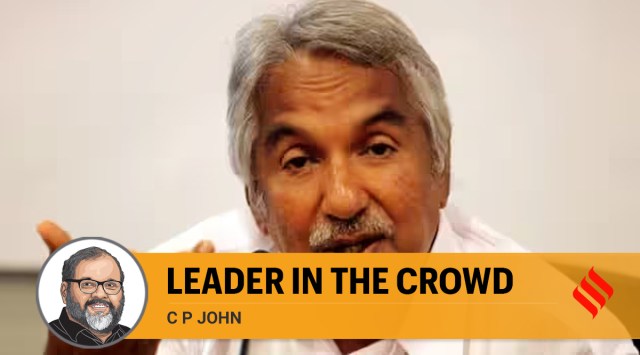
Former Kerala Chief Minister Oommen Chandy, who passed away on Tuesday, was elected from the same constituency to the Kerala assembly for 53 years without a break. He was a pivotal figure in the transformation of Kerala’s polity and society.
Chandy became a leader of the Kerala Students Union (KSU), then a vibrant student organisation aligned to the Indian National Congress, in the mid-1960s, while still in school. The 1960s was a turbulent period for the student community in Kerala. The “baby boom” in the 1950s and ’60s had not been matched by a commensurate supply of educational institutions. Transport facilities were minimal, in both the public and private sectors. Students often took to the streets to press their demands.
Chandy became the president of KSU in the late 1960s. The CPM-led seven-party coalition government (1967-69) in Kerala was a formidable one. But student agitations could disturb the smooth functioning of the government. Slowly, the coalition unravelled and a new government was formed under the leadership of CPI leader C Achutha Menon with the support of INC led by K Karunakaran, which had just nine MLAs in the assembly.
The 1970 election to the Kerala Assembly was a turning point. It saw youth leaders transition into legislators. Chandy was elected to the assembly from Puthuppally in Kottayam district. His manoeuvring skills turned Puthuppally into his pocket borough.
The CPI-Congress coalition was reelected to office in 1970. EMS Namboodiripad became the Opposition leader and CPM unleashed several agitations, especially for the implementation of the land reforms. The new Congress leaders faced an uphill task in establishing their identity in the face of a formidable set of communist leaders. Congress leaders adopted a new style of politics; they started to reach out to people. It may not have been a conscious decision, but the young Congress leaders who emerged in the early ’70s came to be known for being accessible politicians. They were careful not to alienate ordinary people: This style of functioning became the new norm in Kerala politics. And Chandy was its representative figure. In 1978, Chandy was made a minister. But any voter could approach him whenever he wished.
The 1990s was an era of infrastructure development in Kerala. The Congress-led UDF government played a major role in this from 1991. CM Karunakaran would establish an airport (in Kochi) with private investment. When A K Antony became the CM in 2001, the state government established several medical and engineering colleges in the unaided sector. Chandy, then the convenor of UDF, handled the political fallout with finesse. In 2011, when he became the CM, he implemented the Kochi Metro Rail. The Vizhinjam International Transhipment port, first conceived by the Karunakaran government in 1991, was revived by Chandy. The Kannur airport was also completed during his term as CM.
Chandy was soft-spoken. He never uttered an abusive word in public, never scolded anybody. He thought people had the right to decent behaviour from a person with power. However, he had to face false allegations and abuse from his political opponents. But he did not turn vindictive. He just moved on.
Chandy was a man of the people, standing with the poor and the oppressed, always willing to lend a helping hand. However, Kerala society ought to retrospect if it did justice to this gentleman politician.
The writer is general secretary, CMP, and secretary of the UDF